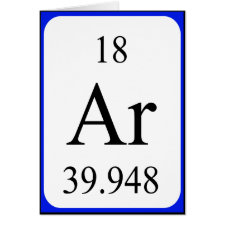
Authors: Yang FF, Deng DD, Dong XC, Lin S
Article Title: Preparation of an epitope-imprinted polymer with antibody-like selectivity for β2-microglobulin and application in serum sample analysis with a facile method of on-line solid-phase extraction coupling with high performance liquid chromatography.
Publication date: 2017
Journal: Journal of Chromatography A
Volume: 1494
Page numbers: 18-26.
DOI: 10.1016/j.chroma.2017.03.013
Alternative URL: http://www.sciencedirect.com/science/article/pii/S002196731730362X
Abstract: Molecularly imprinted polymers (MIPs) for protein recognition have great application potential in the biological analysis. However, preparation of protein imprinted polymer is still facing challenge. β2-Microglobulin (β2m) is a protein biomarker that can be used in diagnosis of different diseases. In this research, a novel MIP with ability of β2m recognition has been developed by epitope and surface-confined imprinting approaches. A peptide with sequence of MIQRTPKIQ was selected as template. A strategy of combination of hierarchical imprinting and template immobilization was employed in the β2m-MIP synthesis. Imprinted binding sites with open-entrance have been created that have good accessibility for β2m and facilitated fast reversible binding kinetics. The experimental results demonstrated that the MIP has good selectivity. It can differentiate the template from peptide with different sequence and distinguish the β2m from other proteins with similar size and pI values. After binding property study of the β2m-MIP, a method of β2m determination in serum was established in which β2m was on-line extracted by MIP and analyzed by HPLC process. The recoveries for spiked serum was ³83% with RSD <1.1%, indicating that the method has good accuracy and precisions. The LOD and LOQ were 0.058 and 0.195 mg L-1 respectively, which meet the requirements of the β2m analysis. The successful application of the β2m-MIP demonstrated that β2m has reversible binding on the MIP with a kinetics that can meet the requirements of the HPLC analysis. It also indicated that the β2m-MIP has good mechanical strength and reusability that can be applied reliably in the practical analysis. As a synthetic antibody, β2m-MIP is advantageous compared to the biological molecules
Template and target information: peptide, epitope, MIQRTPKIQ, protein, β2-microglobulin, β2m
Author keywords: epitope-imprinted polymer, Beta2-microglobulin, Surface-confined imprinting, Serum sample analysis, Selective solid-phase extraction, On-line coupling with HPLC



Join the Society for Molecular Imprinting

New items RSS feed
Sign-up for e-mail updates:
Choose between receiving an occasional newsletter or more frequent e-mail alerts.
Click here to go to the sign-up page.
Is your name elemental or peptidic? Enter your name and find out by clicking either of the buttons below!
Other products you may like:
 MIPdatabase
MIPdatabase









